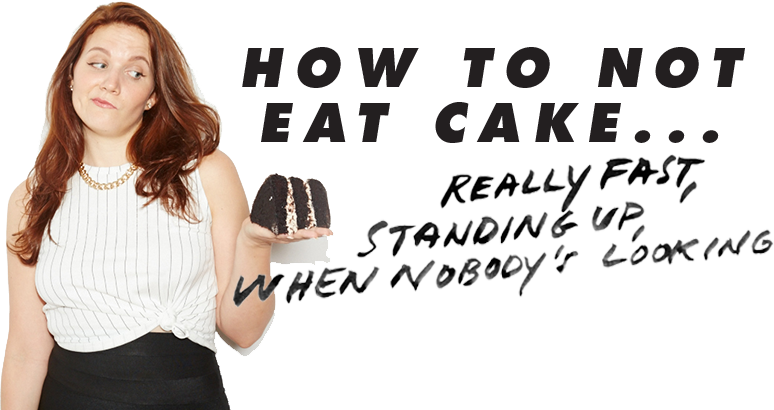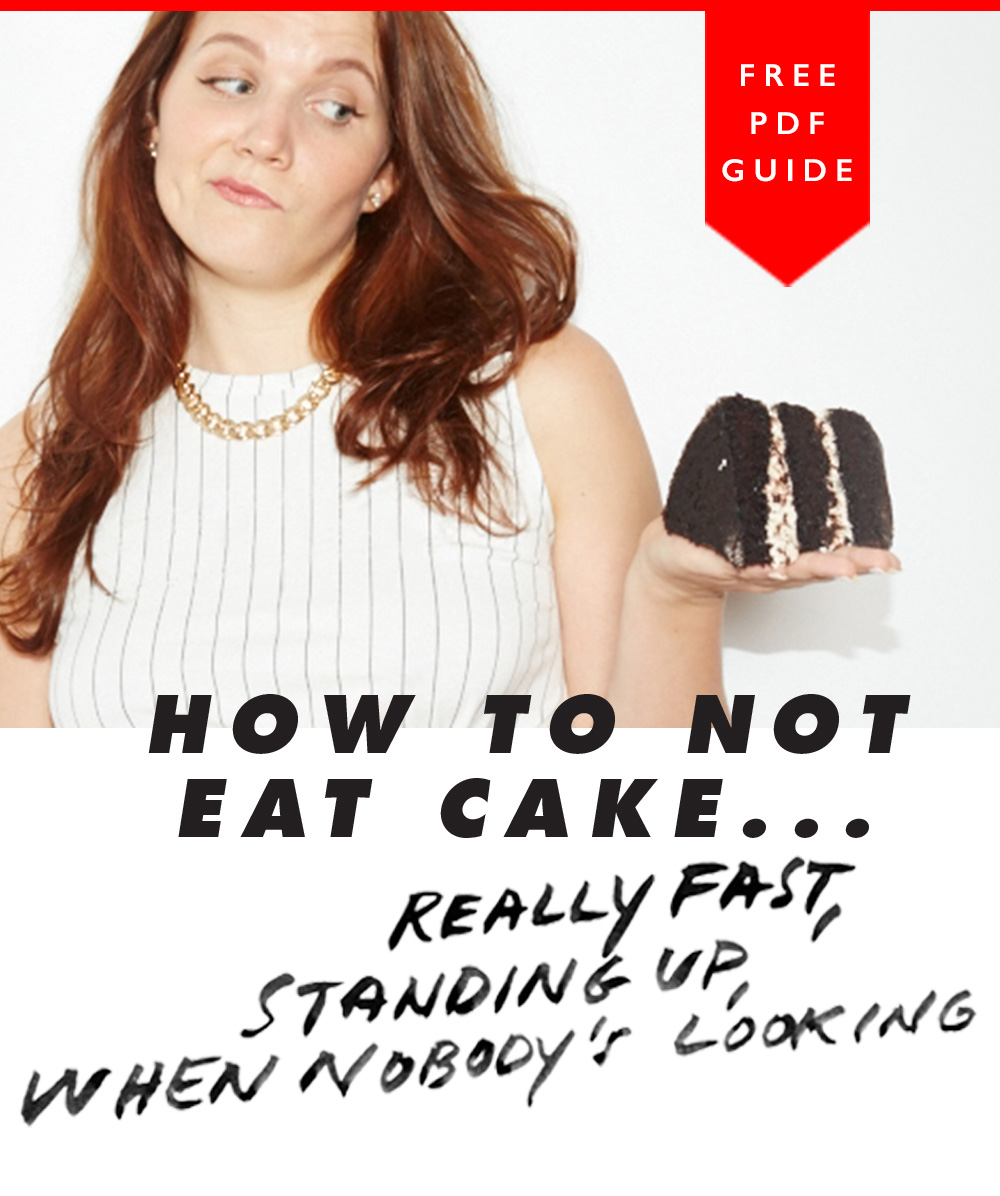Before You Eliminate Foods for Health Reasons…
 Dear Isabel,
Dear Isabel,
I’ve tried to start weaning myself off of certain foods that I’ve learned may be negatively impacting my digestion—not for weight loss, but for my digestive health. That being said, I’m having a hard time and fear I may be falling back into restrict-binge-type cycling. Am I just biting myself in the foot for doing this?
Honestly, it really depends.
I absolutely believe that people who are recovering from diet-binge cycling (or restrict/binge cycling) can learn to eliminate certain foods for health reasons (e.g. allergies, etc.) BUT doing so effectively without falling into old patterns or diet-mentality requires an enormous amount of honesty with yourself about what’s motivating your choices, and conscientiousness to make sure your core needs are being being met without those particular foods.
Here are some important questions/comments to consider before starting any kind of food elimination for “health reasons.”
1. Are you harboring fantasies of weight loss or weight control as a side effect of this choice? If your honest answer is “yes,” you may be setting yourself up for failure (and binge-eating rebound), as active attempts at food restriction for the purpose of weight control (a.k.a. dieting) don’t usually work out that well in the long-run. As you’ve probably heard me say a million times before, the people who are most likely to stick to health behaviors without rebounding, are those who are able to decouple “health” and “weight” in their minds.
2. Are you comfortable with the possibility that you may not be able to follow your health intentions 100% of the time despite your best efforts? Because—as most binge-eaters know, but too often forget—the reality is that your food choices are not only controlled by willpower, but also by instinct— instincts that are impacted by biology, psychology, emotions, and a million other factors outside of our control. If “breaking” your decision to avoid a certain food makes you feel guilty, ashamed, or like there’s something fundamentally wrong with you because you can’t “stick to” your health choice, you may end up in “falling off the wagon” style binge-eating. (In other words, can you get down with the gray-area of self-care?)
3. Is attempting this particular dietary restriction truly worth the risk of being triggered at this point in time? Because eliminating foods (even for pure health reasons) can be very triggering (and potentially unsafe) for women with histories of restrictive behavior. We live in a culture that regularly touts restriction as a “natural” and “safe” alternative to other medicinal therapies—but the truth, restriction is NOT risk-free.
In some cases, elimination of foods for medical purposes is simply not worth the risk of falling back into disordered eating patterns or exposing yourself to other risks related to restriction. If you’re new to a non-diet approach to eating, or know that you’re still vulnerable to triggering situations around food and weight, be sure to get honest with yourself about whether or not attempting a specific dietary restriction is worth the risk of being triggered at this point in time—depending on the health issues your dealing with, and where you are in your recovery from diet-binge cycling. It’s YOUR body, and only you can make that call. (Also, you can always try later on when you feel more “ready”).
4. Can this particular health concern be addressed through non-restrictive means? Have you thoroughly explored all non-restrictive options for managing this health concern?
For instance, blood sugar issues can often be managed (or significantly reduced) by ADDING IN protein, fat, and fiber to one’s diet—rather than exclusively focusing on *reducing* carbohydrates, which is the general recommendation by medical professionals who rarely consider the risks associated with a carb-reduction approach. More on this here.
5. Are you *fully* meet your core nutritional needs without those foods? For instance, if you’re attempting to eliminate gluten for digestive health reasons—are you making *extra sure* to replace those glutinous carbohydrates with non-glutinous carb options? One of the most common ways I see folks fall back into diet-binge cycling patterns is by making restrictive health changes without properly replacing the macronutrients they may miss as a result. I talk about this at length in this post about “accidental restriction,” but the punchline is…gluten may not be a requirement for a thriving, healthy body…but carbohydrates (in satisfying amounts) is generally NOT optional. Ditto fat, protein, and to some extent, fiber. HUMAN BODIES ARE DESIGNED TO CONSUME ALL FOUR MAJOR MACRONUTRIENTS, and generally suffer if one is underrepresented for too long. If you have questions about this, make sure to read this post.
6. Lastly, if you DO decide to go for it and attempt eliminating a certain food for health reasons, remember that you’re allowed to stop whenever you want. Again, it’s your body and you have nothing to prove. If trying to eat a particular way is triggering you or doesn’t feel right for any reason, you have the right to change your mind at any time. Health choices should always be viewed as just that: CHOICES. When health choices become “rules” that overwhelm our own intuitive capacity for self-care, we are—by definition—at war with ourselves.
ALSO, if you know a particular form of food elimination is critical for your health, or has been recommended by your primary care physician, and you’re still struggling to “stick to” — make sure to read this important post about Eating Intuitive with Medical Restrictions.

